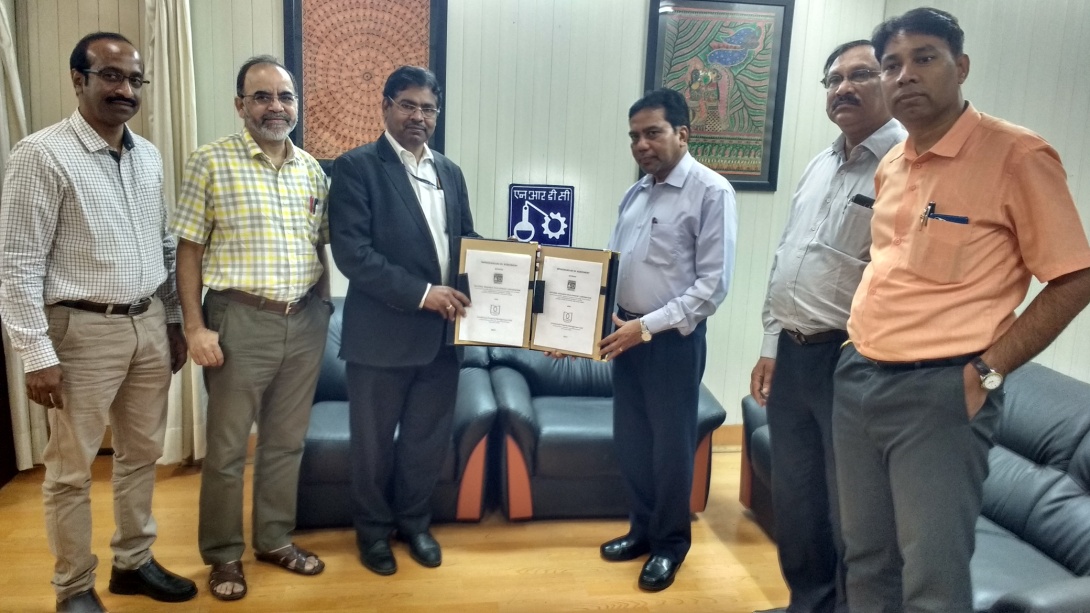A. Responsibility
The IPM cell will assist the University to manage its intellectual property (IP), provide services for IP patenting, copyright and licensing to all Schools/Centres of the University. IPM cell will assist the University to file patent applications in India/abroad and execute other documents; execute license, and material transfer agreements; enter into confidentiality and non-disclosure agreements, and execute other documents related to Intellectual property and confidentiality/non-disclosure agreement. The IPM cell will handle IPR related issues such as copyright for publications, software, etc. The cell will also assist the investigators on technology mapping/ technology scanning of important projects being undertaken.
From time-to-time IPM cell may organize seminars and presentations to expose participants to the basic concept of IPM and its strategic role in Indian context through interactions with experts.
B. Organization
IPM cell will have the following organizational structure for a period of two years w.e.f. 16 October 2020::
Members of IPM Cell
|
1. Prof. Suneel Kateriya, IPM Cell |
Chairperson |
|
2. Prof. Anil Wali, FITT, IIT, Delhi |
Member (External Expert) |
|
3. Prof. Bijoy Kumar Kuanr, SCNS |
Member |
|
4. Prof. S. Patnaik, SPS |
Member |
|
5. Prof. B.R. Panda, SBT |
Member |
|
6. Dr. Usha Mina, SES |
Member |
|
7. Prof. Umesh Chand Singh Yadav, SCMM |
Member |
|
8. Dr. Sapna Ratan Shah, SC&IS |
Member |
|
9. Dr. Ayushi Barthwal, SoE |
Member |
|
10. Finance Officer, JNU (or his Nominee) |
Member |
|
11. Director, CIS |
Member |
|
12. D.R./A.R. (Legal Cell) |
Member Secretary |
A panel of patent attorneys who will work as consultants both for legal and financial matters.
C. Financial Support
Financial resources needed to establish IPM cell would initially be provided out of the funds granted under the University with Potential for Excellence Scheme or out of the funds which may be sanctioned by University Grants Commission in future Five Year Plans. Additionally, the patent filing costs could be met from any of the following sources.
IPM Cell’s resources
Paid by the inventor through project grants
Through external agencies like NRDC, TIFAC, BCIL etc.
Some of the funding agencies sanction grants only on the condition that the technology developed as a result of the project funded by them will belong to them. In that case the inventor has to follow the conditions laid down by the funding agency.
D. Benefit Sharing
Universities the world over have acknowledge the claims of academic creators to have some share in the income derived from the technology transfer. The revenue received as a result of patents in the form of cash royalties and/or equity shall be distributed in such a manner as to encourage technology development and its transfer.
Proposed Benefit Sharing - The benefits received by the University on account of technology transfer in a year shall be shared between inventor’s team and the University as per Resolution No. 6.17 of EC meeting held on 16.10.2003[Notification No. Acad II/U/13(7) dated 10.02.2004] in the following manner:
(i) money received upto 30% of No Sharing
the gross salary (basic+DA+CCA)
(ii) money received beyond 30% 70:30 between the inventor’s team
and upto the gross salary and the University
(iii) money received beyond 50:50 between the inventor’s team
gross salary and the University
E. Conflict of Interest and its Settlement
If an inventor has a grievance about the University's handling of intellectual property, he/she can take the benefit of the Grievance Redressal Mechanism already existed in the University.*source:- approved in EC on 29/11/06 and received the document from IPM Cell and uploaded on the website on 26/11/07
NRDC and IPM CELL JNU Sign MOU
The Intellectual Property Management (IPM) Cell of JNU signed a MOU with National Research Development Corporation (NRDC), an autonomous unit of Department of Science and Technology, Ministry of Science and Technology, GOI on 29th May 2017. It was signed by the NRDC Chairman and Managing Director, Dr. H. Purushotham and Prof. H. B. Bohidar, Chairperson, IPM Cell, JNU. This MOU will facilitate commercialization of JNU patents for which NRDC will provide the necessary platform. In addition, they have agreed to host our patents on the International Patent Exchange in Hong Kong that will provide global visibility to JNU patents. This MOU will remain in force for five years.
